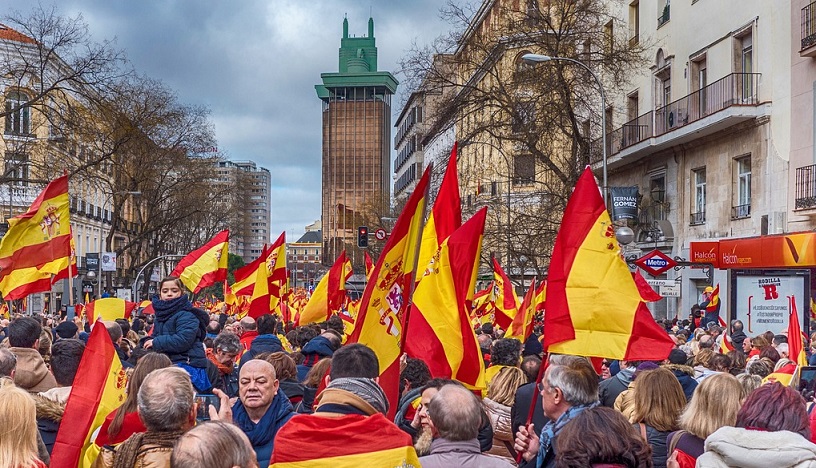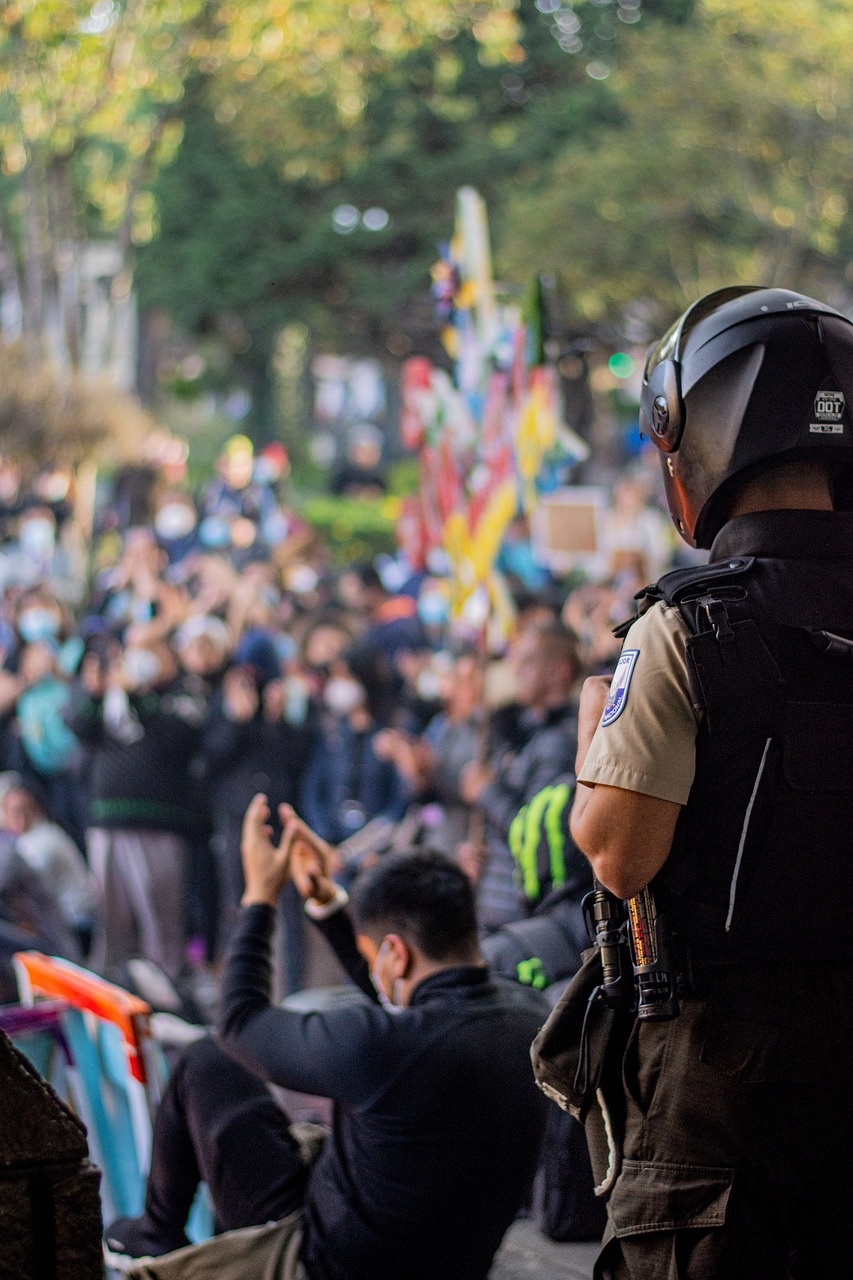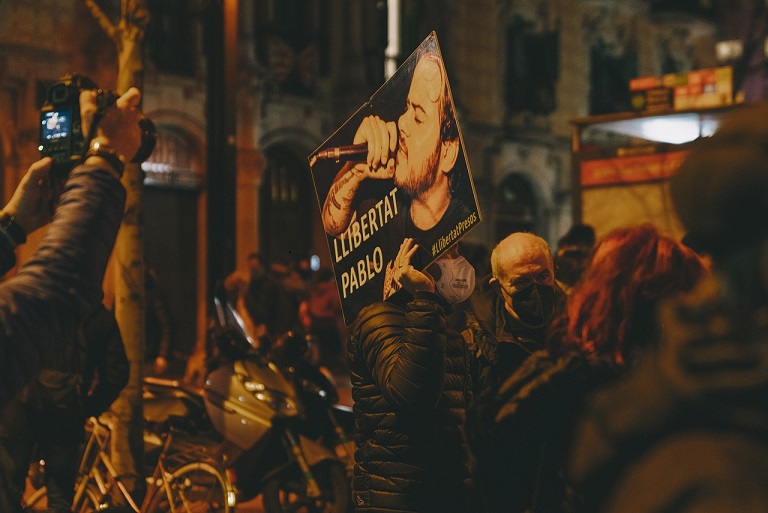The dominant class in Latin America and the Caribbean represents a very small percentage of the population but manages to assemble in its defence social groups of some importance.
 Juan Diego García
Juan Diego García
In addition to a significant proportion of civil servants (key to ensuring control of the state), the creole oligarchy enjoys the military’s backing, support from large sectors of medium-sized and small property owners and, strangely, support from popular sectors which for various reasons adopt that oligarchy’s slogans.
For that very reason, the left – as well as organising and raising the political culture of its own social bases – must progress with the formulation of its strategic programme to overcome the current social order. And also give shape to an immediate programme of government that contributes to subsequent progress towards the strategic objective.
But the most important thing is that it seeks a way to remove from the local oligarchies the social support that they have and which gives them large advantages at the ballot box and in the institutions, along with various degrees of social support and legitimacy. Because those oligarchies undoubtedly have what any social order requires to give it legitimacy and not end up in some form of dictatorship, in some form of fascism.
 It is impossible for the left to gain the support of part of the civil service for a progressive project that would mean the end of its many privileges. The same is true of the so-called “political class” for whom corruption is the principal source of finance and enrichment.
It is impossible for the left to gain the support of part of the civil service for a progressive project that would mean the end of its many privileges. The same is true of the so-called “political class” for whom corruption is the principal source of finance and enrichment.
For these sectors, corruption is the payment the system awards them for their services. Replacing these groups who are specialists in the administration of public affairs is not easy, but neither is it impossible. The training and specialisation of new groups might cause some temporary difficulties but these can be alleviated by an appropriate immigration policy.
The military and police’s backing of the creole bourgeoisie is not impossible to dilute either. Most of the officers – especially the non-commissioned officers – are from middle and working class backgrounds.
On the other hand, there are several police officers and members of the military implicated who are only executors of repression as the main responsibility lies with government leaders and figures from the creole oligarchy. A new formation – especially of officers and non-commissioned officers – putting emphasis on the national question would allow the left to boost authentic national sentiment and overcome these national armed organisations’ current shameful dependency on foreign powers. The existence of groups of armed civilians (paramilitaries) acting in the service of the creole oligarchy has become the norm on the continent (including, of course, in the United States itself). They constitute one of the main instruments of local fascism. Sometimes they act alone but more and more often they operate in open coordination with the military and the civil Administration.
An important part of these forms of creole fascism is seen in common criminal activities (drug trafficking, smuggling and so on) but always as a real or potential instrument of the right.
![]() That is why it is not in their interest to end the “war on drugs” since it would deprive these paramilitary groups of their major source of funding and it would create possibilities of finding a solution to the problem.
That is why it is not in their interest to end the “war on drugs” since it would deprive these paramilitary groups of their major source of funding and it would create possibilities of finding a solution to the problem.
It would be much more complex for the left to put an end to the armed groups who are direct instruments of landowners, ranchers and businessmen in the agro-industry and large-scale mining sectors. This is because it must promote far-reaching agricultural reform and substantial changes to the current model which puts the emphasis on exporting raw materials. In other words, it has to affect key interests of the large bourgeoisie. Similarly, the defence of the national market involves an all-out battle against smuggling, equally linked to these forms of illegal armed action.
A new sort of national development project, one which prioritises the local market and immediately proposes food sovereignty and industrialisation (albeit within the modest margins of a new developmentalism), would likewise affect key interests of the dominant class and its foreign allies, whose ability to promote those forms of creole fascism so typical of the region would not be limited.
 But without doubt the left’s biggest challenge is to reduce as much as possible the effective support given to the right’s project by certain popular sectors.
But without doubt the left’s biggest challenge is to reduce as much as possible the effective support given to the right’s project by certain popular sectors.
In the past, the Catholic church was the decisive agent in the manipulation of the less politically-educated sections of society.
In many places the Catholic church controlled certain rural sectors ensuring not just an enormous contingent of votes but also their active mobilisation in favour of the traditional oligarchy.
However, urbanisation processes have greatly diminished the percentage of the population that is rural, and reactionary, conservative parish priests in villages and hamlets have found themselves without parishioners to mobilise. Nevertheless, the place of those parish priests of yesteryear is occupied now by thousands of pastors from the strangest tendencies of so-called Pentecostalism, a very backward and pre-modern version of the Christian doctrine.
Many of these organisations operate as sects that in some cases manage to mobilise millions of votes (not just in Brazil) in favour of an ultra-right narrative. And they also incite various types of illegal action aimed at bringing about coups d’état and similar objectives. Sufficiently strong social policies in areas like health, education, housing and employment undoubtedly give very solid arguments to a progressive government to diminish those indoctrinations of the affected sectors and take one of its popular supports away from creole fascism.
Many new Christian tendencies are financed by United States entities and therefore it is not surprising that their narrative coincides with Washington’s interests.
 The large bourgeoisie may be close to 1% of these countries’ populations but through various methods it manages to assemble around itself not insignificant percentages, as can be seen in so many of the region’s countries. In cases like those of Chile and Argentina, an openly fascist narrative is even permitted; and in Colombia, without looking any further, they are already parading to demand a coup d’état. They are a minority but they are taking the opportunity to advance the high level of disunion among the progressive forces, no less than the obvious errors of the leaders and parties of the left.
The large bourgeoisie may be close to 1% of these countries’ populations but through various methods it manages to assemble around itself not insignificant percentages, as can be seen in so many of the region’s countries. In cases like those of Chile and Argentina, an openly fascist narrative is even permitted; and in Colombia, without looking any further, they are already parading to demand a coup d’état. They are a minority but they are taking the opportunity to advance the high level of disunion among the progressive forces, no less than the obvious errors of the leaders and parties of the left.
(Translated by Philip Walker – Email: philipwalkertranslation@gmail.com) – Photos: Pixabay












.jpg)












